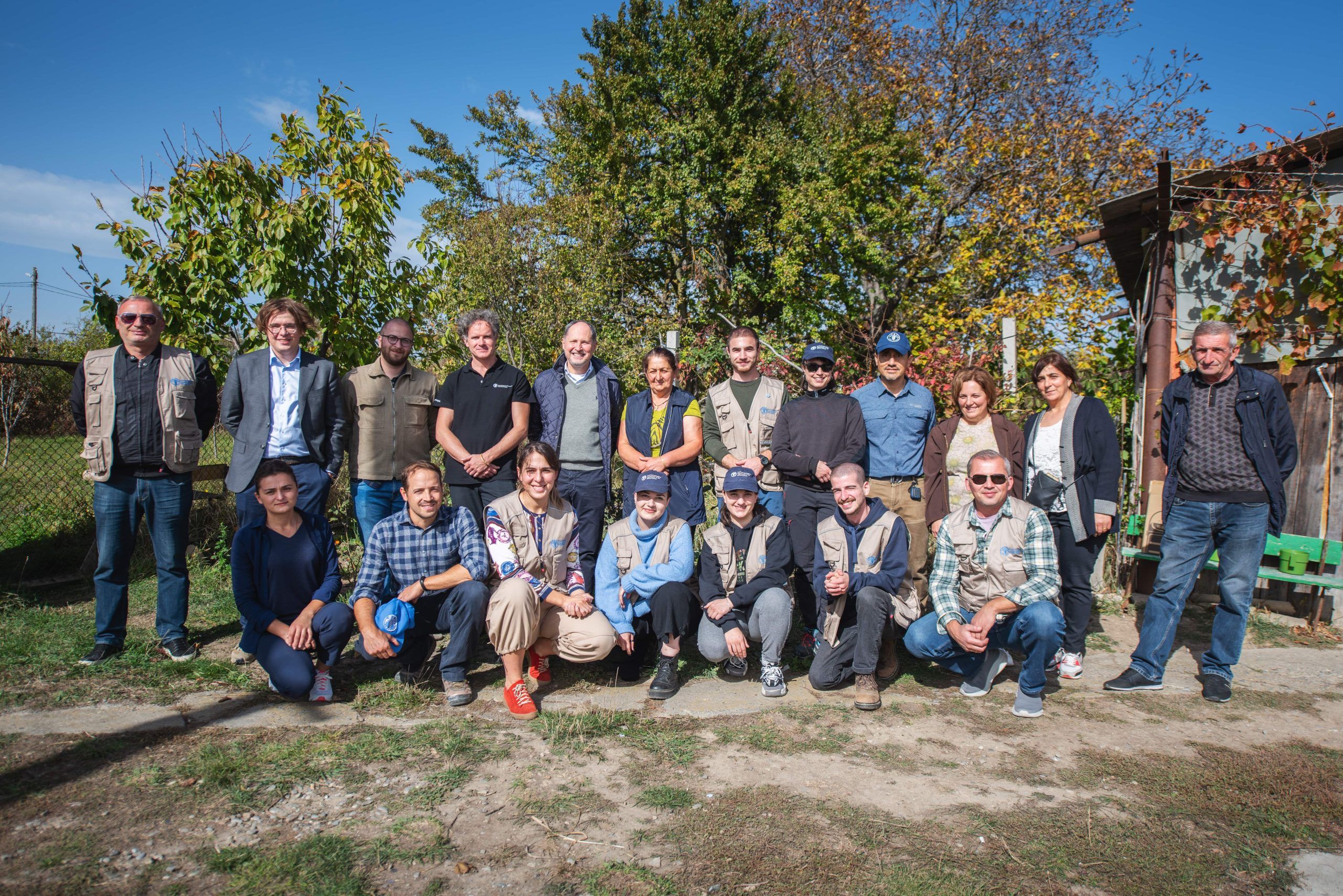
EU-Funded Field Schools Help Farmers Produce Safe and Quality Products
Tamar Koblianidze is a 63-year-old farmer from the village of Kitsnisi, Gori district. Together with her colleagues, she has been attending a field school for farmers over the course of several months and is a beneficiary of an ongoing project funded by the European Union and implemented by the UN Food and Agriculture Organization (FAO) as part of the ENPARD program.
The field school is set up in her own home. These days, Georgian farmers are keen to learn modern food safety standards, enabling them to produce high-yield products meeting the EU quality requirements. The training is conducted in several thematic areas and includes animal husbandry and beekeeping.
Anuki Natsvlishvili, FAO veterinarian and food safety extension specialist, explains that the farmer schools provide beneficiaries with training and knowledge about safe milk production and processing, as well as the safe and hygienic manufacturing of high-quality cheeses and other dairy products.
“Our training courses also include innovative technologies of producing cheese that is much more expensive than the traditional Imeruli or Sulguni cheeses. This production technology enables farmers to receive more economic benefits,” notes Anuki Natsvlishvili.
Tamar, who currently has two cows and two calves and produces cheese and dairy products, does her best to put her new knowledge into practice, by focusing on the importance of preventing and detecting animal diseases that cannot be diagnosed by superficial examination, and instead require special tests.
She says: “The training helps farmers to ensure our products are safe for ourselves and also for our consumers. And I am also able to use the knowledge I gained at the school for beekeeping”.
Thanks to the EU-funded field schools, farmers residing in different regions of Georgia now have far better access to modern food safety practices and information. The programme currently operates 84 schools across Georgia and has trained more than 2,000 beneficiaries to date. Importantly, most of the trainees are women owning small-scale farms. In addition to information and knowledge transfer, the training courses also promote collaboration and the sharing of best practices between the beneficiaries, while also enhancing networking.